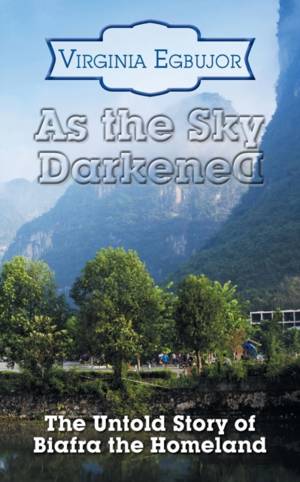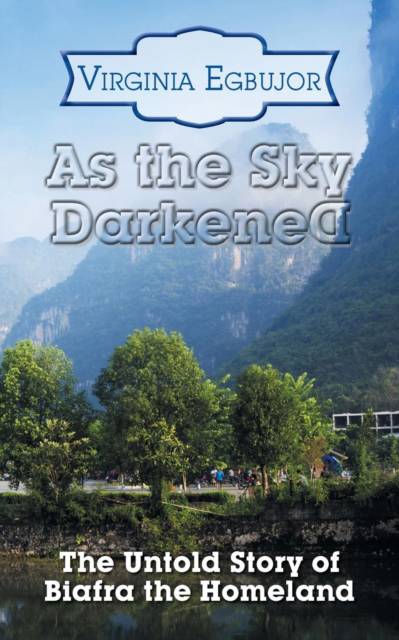
- Afhalen na 1 uur in een winkel met voorraad
- Gratis thuislevering in België vanaf € 30
- Ruim aanbod met 7 miljoen producten
- Afhalen na 1 uur in een winkel met voorraad
- Gratis thuislevering in België vanaf € 30
- Ruim aanbod met 7 miljoen producten
Zoeken
€ 21,95
+ 43 punten
Omschrijving
As the Sky Darkened: The Untold Story of Biafra the Homeland gives a vivid narrative of the war that took place in Nigeria in the second part of the twentieth century. It recounts the events that preceded the war and culminated in the widespread massacres that targeted the Igbo tribe of Southeastern Nigeria and the Igbo west of the Great River Niger. The novel provides a lucid account of effort at the extermination of these people, which supports the allegation of attempted genocide of Igbos. It started in the north of the country and spread all over the country; this made the Igbo declare their own nation, their homeland, Biafra. That declaration provoked an all-out war against that young state, and the novel incorporates the wholesale destruction of life carried out by the Nigerian Army. The conflict dragged out for three long years, during which time unimaginable bombing, shelling, murder, rape, and abduction of women and girls were carried out by the invading army. Hunger was used as a weapon of war, and children, the elderly, and many more lost their lives from hunger and starvation. Lamentably, the novel recounts that the new nation, poorly equipped and ill prepared for such a protracted war, lost the war at the end of three years. It sadly concludes that after the three long years of suffering and untold anguish. With a loss of about two million Igbo civilians, they were forced back in Nigeria. After the war, life of the Igbos continued to be hard. They still felt disliked, unwanted, and unhappy for nothing they had done wrong.
Specificaties
Betrokkenen
- Auteur(s):
- Uitgeverij:
Inhoud
- Aantal bladzijden:
- 148
- Taal:
- Engels
Eigenschappen
- Productcode (EAN):
- 9781496999344
- Verschijningsdatum:
- 20/12/2014
- Uitvoering:
- Paperback
- Formaat:
- Trade paperback (VS)
- Afmetingen:
- 127 mm x 203 mm
- Gewicht:
- 167 g

Alleen bij Standaard Boekhandel
+ 43 punten op je klantenkaart van Standaard Boekhandel
Beoordelingen
We publiceren alleen reviews die voldoen aan de voorwaarden voor reviews. Bekijk onze voorwaarden voor reviews.








